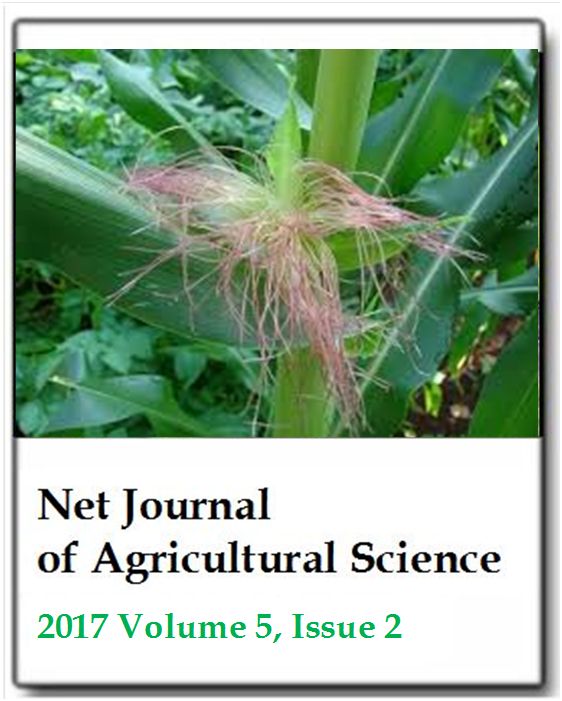Effect of soil solarization combined with reduced doses of the fumigant metam sodium on management of some soil borne pathogens and root-knot nematode of pepper grown in greenhouse
Seral Yücel, Adem Özarslandan and Canan CanNet Journal of Agricultural Science
Published: April 20 2017
Volume 5, Issue 2
Pages 31-37
Abstract
This study aimed to define the effect of soil solarization and reduced dose of the fumigant metam sodium on managing of root-rot and wilt diseases, caused by Rhizoctonia solani and Fusarium solani, F. oxysporum, as well as the nematode Meloidogyne incognita of pepper (Capsicum annuum L.) grown in the greenhouses. The effect of metam sodium (MS) at 500, 750 L ha-1 that accounts for 40 to 60% reduction of recommended dosage, on disease incidence, galling index and yield values was defined. Three different trials were conducted during 2014/2015 growing season in farmer's greenhouses. Pepper seedlings were planted in October, 2014 and plants were uprooted for evaluation in July, 2015. Disease incidence of wilt and root-rot diseases were 3.7 to 8.7, 15.0 to 17.5 and 32.5 to 36.2% in solarization combined with low dosage of fumigants, solarization alone and control plots, respectively. Disease incidence in plots where MS was applied at 1250 L ha-1 was 1.2%. Galling index caused by root-knot nematode was under 2 in treated plots, but in control plots of the three greenhouse experiments were 7.08, 6.48 and 7.29, respectively. Yield value increased to the average of 56.6% in solarized plots compared to those of control plots. When the soil solarization was combined with low dosages of the fumigant MS (S+MS 500) and (S+MS 750), the increase in the yield values reached to the averages of 31.6 and 75.6%, respectively.
Keywords: Pepper, metam sodium, solarization, soil borne pathogens, Meloidogyne incognita.
Full Text PDF
ISSN: 2315-9766
